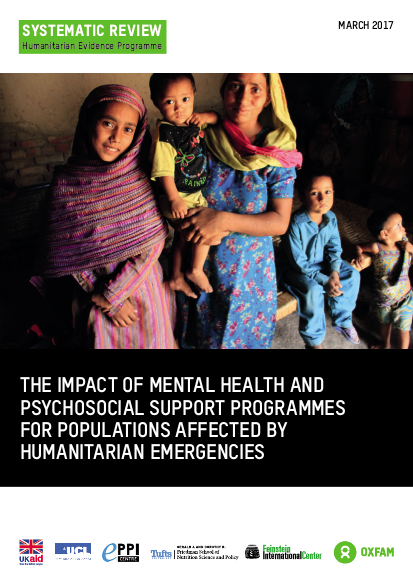
This systematic review, commissioned by the Humanitarian Evidence Programme and carried out by a team from the EPPI-Centre, University College London (UCL), draws together primary research on mental health and psychosocial support (MHPSS) programmes for people affected by humanitarian crises in low- and middle-income countries (LMICs). It investigates both the process of implementing MHPSS programmes and their receipt by affected populations, as well as assessing their intended and unintended effects. What are the barriers to, and facilitators of, implementing and receiving MHPSS interventions delivered to populations affected by humanitarian emergencies? What are the effects of MHPSS interventions delivered to populations affected by humanitarian emergencies? What are the key features of effective MHPSS interventions and how can they be successfully developed and implemented? What are the gaps in research evidence for supporting delivery and achieving the intended outcomes of MHPSS interventions?
The systematic review, together with corresponding executive summary and evidence brief, forms part of a series of humanitarian evidence syntheses and systematic reviews commissioned by the Humanitarian Evidence Programme. Other reports in the series review the evidence on interventions or approaches to mental health, child protection, market support and household food security, acute malnutrition, pastoralist livelihoods, shelter self-recovery and urban response.
